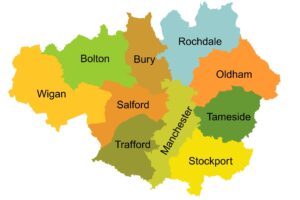New data from the Office of National Statistics (ONS) shows that inflation rates remained steady in January, however, charities have warned the news will result in some low-income families choosing between food and heating.
The figures from the ONS found that inflation rates remained at 4% last month despite an increase in energy bills as the cost-of-living crisis continued to squeeze people’s budgets. Experts highlighted that food prices began to fall last month, making this the first time it’s happened within the last two years.
As a result of the cost of food coming down it offset the rise in gas and electricity costs.
The news has been positively received by financial experts as the Bank of England predicted a small rise in inflation last month after an increase in the Ofgem energy price cap for households across Great Britain, while economists polled by Reuters expected a rise to 4.2%.
However, various charities across England have explained why this news will not be accepted well by many.
Peter Matejic, chief analyst at the Joseph Rowntree Foundation, said: ‘Families on the lowest incomes won’t be debating what it means for inflation to remain at 4%. They’ll be debating whether to turn the heating on, or to replace their shoes that have holes in or to skip another meal because they can’t afford it.
‘The government’s cost-of-living payments gave families a short-term reprieve. Without them, they face an income safety net that offers no safety and the ever-rising cost of essentials like food and energy.
‘Politicians can start making a difference at the budget. Universal credit needs to reflect the actual cost of essentials. Beyond that, we need an economy that works for people, not one that leaves people exposed to unjustifiable hardship.’
In addition, chancellor Jeremy Hunt said: ‘Inflation never falls in a perfect straight line, but the plan is working; we have made huge progress in bringing inflation down from 11%, and the Bank of England forecast that it will fall to around 2% in a matter of months.’
Since the cost-of-living began to climb in 2021 the Bank of England have hiked interest rates 14 times and have recently left them at 5.25%. Although this move is helping to bring inflation down, it is having serious affects on mortgage rates. At the beginning of this year, research found that around 2.3 million households are expected to face higher rates in 2024, with an average monthly repayment increase of £240.
Although, Daniel Austin, CEO and co-founder at ASK Partners, claimed that really high inflation figures could help boost the property market.
‘Stubbornly high inflation figures will be followed closely by those with vested interested in real estate debt, and those hoping to see a positive boost in the market,’ Austin said. ‘Generally, property has long been considered a good hedge against inflation, with property values and income keeping pace with inflation over the longer term. Those looking to invest in property will, as such, be keeping a close eye on upcoming inflation and interest rate decisions as the economy continues to weather this uncertain period.’
Image: Frantisek_Krejci
Inflation: Interest rates stuck at 5.25% for fourth consecutive time

















Leave a Reply